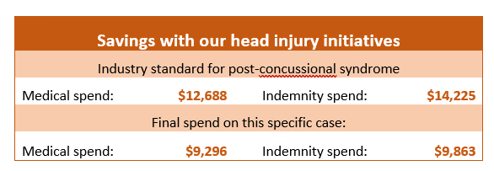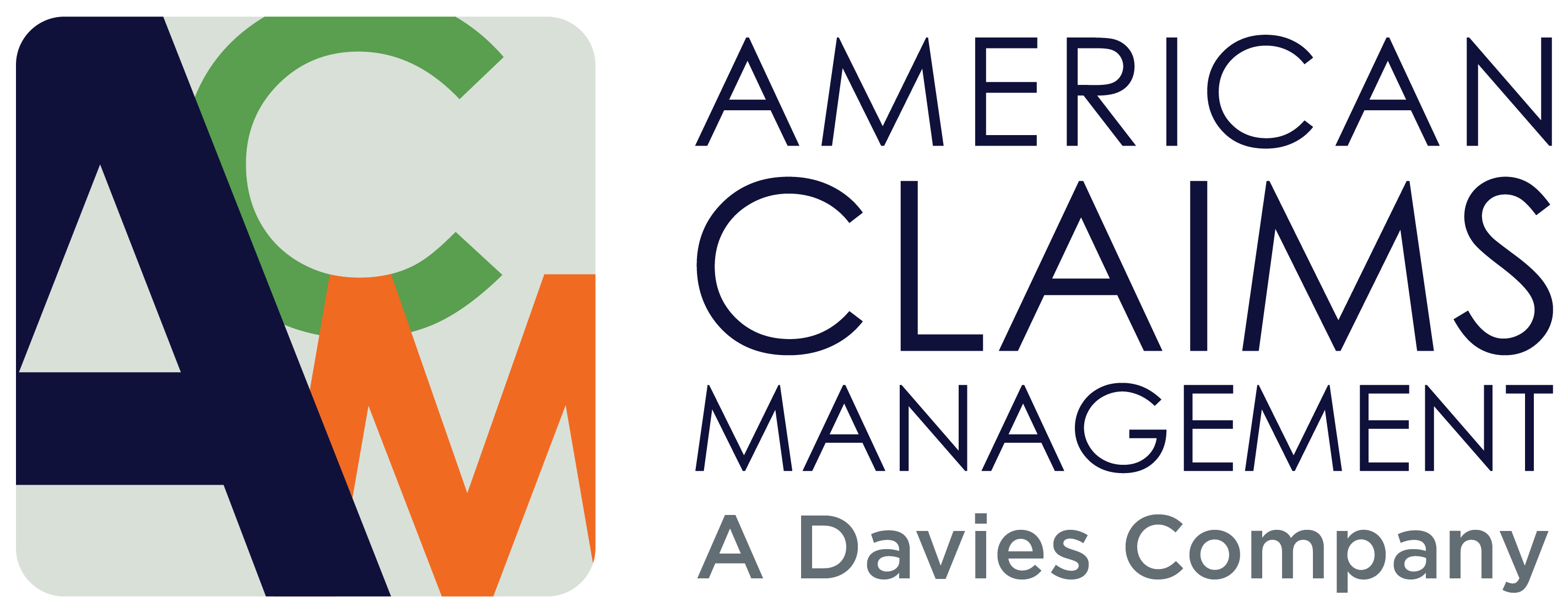Last week we discussed two of ACM’s 2022 workers’ compensation claims initiatives, Rebound and RapidResponse, that not only significantly help resolve claims more quickly, lowering payouts and reducing litigation costs for employers and insurers. Even more important, they provide injured employees the latest in quality medical care and returning them to gainful employment. Today we’ll discuss two more initiatives, our Head Injury program and our pain management pilot program with Harvard MedTech. All four programs will help us resolve work comp claims faster, saving our employers and insurers time and money. View last week’s post here.
Related: How 2021 workers’ comp trends affect your clients’ claims costs
Head Injury Program
Our Head Injury Program is both a URAC initiative and an advocacy component of our existing programs. URAC brought this initiative to the forefront with the recent recognition of the significance of even minor head injuries. Everest, our carrier partner on this initiative, had several claims from minor and untreated hits to the head that took place two or three years ago, and now have caused major injury issues. Examples are football players, from kids to pros, who’ve experienced multiple minor concussions. This program focuses on these supposedly minor injuries that later are causing post-concussion syndrome headaches, memory loss and more.
In this program, whenever a head injury is diagnosed, a nurse case manager escalates immediate care. This includes ensuring proper evaluations and individualized treatment, improving/enhancing return-to-work outcomes, reducing disability duration, resolving work comp claims faster and promoting a holistic approach to each patient’s individualized rehabilitation plan. In other words, it focuses on early identification to ensure that the proper assessments and evaluations are being completed.
Head injury case study
In October, the employee was sitting in his car while parked on the street. Someone opened his door and hit him with a baseball bat. He was diagnosed with post-concessional syndrome, depression, anxiety, sleep disorder, neck injury, right ear injury, right forearm injury, left forearm injury . Using proactive case management intervention tailored for the individual, the worker was released to full duty four months later and successfully returned to work.
Here’s the savings, thanks to our head injury program:
Our head injury initiative saved the employer’s insurance company more than $7,700.

Harvard MedTech pilot program for pain management
Working with Harvard MedTech (HMT), we are testing their virtual reality pain management therapy, to help wean patients from medication, providing pain management for chronic pain and helping patients return to work faster and resolve work comp claims faster.
HMT uses virtual reality technology for patients coupled with personalized behavioral intervention strategies. The VRT (virtual reality therapy) platform should promote long-term pain mitigation and resiliency through a bio-psycho-social approach as an alternative to opiates.
The VRT platform is still in its testing phase. We at ACM will look at all alternative methods for pain control to limit the need for opioids. As an advocate for the patient, we’ll exhaust all options before turning to opioids.
Related: Top 7 workers’ compensation claim mistakes and how to avoid them
Additional medical initiatives for 2022
In addition to the four programs discussed in this and our last blogpost, we’re also deploying the following tools:
- Whole Person Assessment, a disability assessment tool that can be used for funding a claim where there is anticipated permanent impairment.
- Non-Certified Surgery Program begins when surgery is denied and evaluates Peer Review denial reason, facilitates an appeal if appropriate, and conferences with treaters for a treatment plan.
- Pre-Surgical Pain Screening Program begins after surgery is approved. It includes a pre-surgical assessment and patient sessions prior to and after surgery, to support recovery.
- Enhanced Pharmacy Program, in partnership with Optum, that focuses on the safety, efficacy and cost containment of pharmaceuticals.
- Medical Clearance focuses on minimizing treatment delays. Medical clearance often accompanies requests for surgical interventions. When we see treatment delays because medical clearance is determined to be not medically necessary, we can intervene and, if necessary, work to overrule that decision.
- Functional Rehabilitation Program (FRP). While these programs can be costly, they also can help with chronic pain management. We scrutinize any FRP requests to ensure they’re approved on appropriate claims and work with medical providers to create tailored alternative treatment plans.
View our previous story on two other work comp claim initiatives, Rebound and RapidResponse, here.

